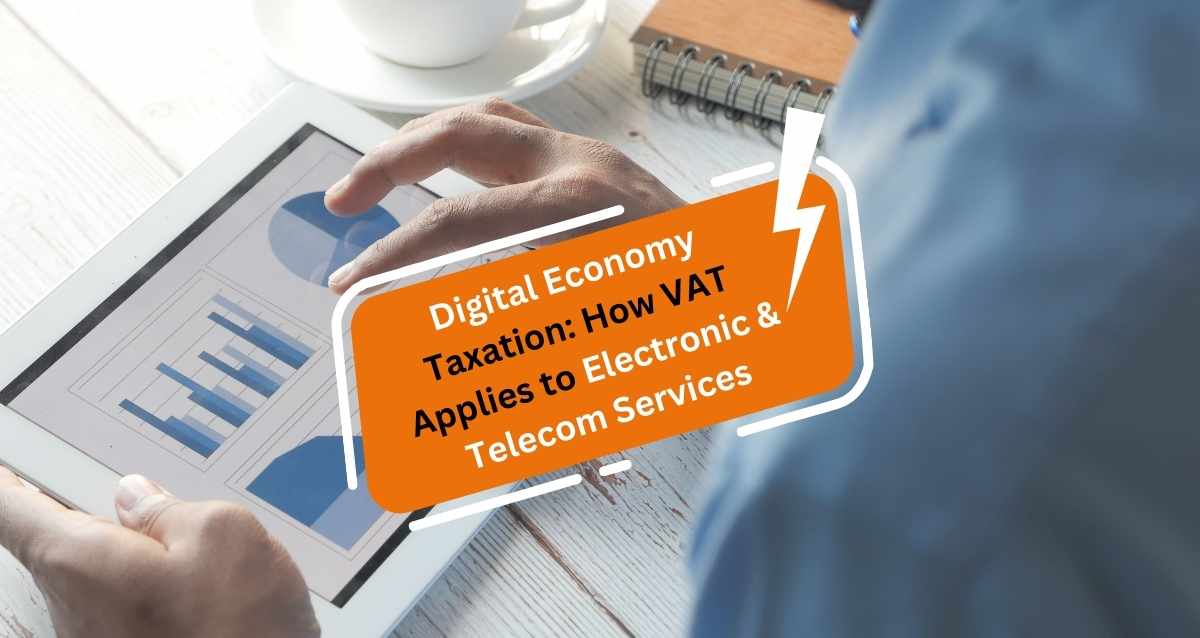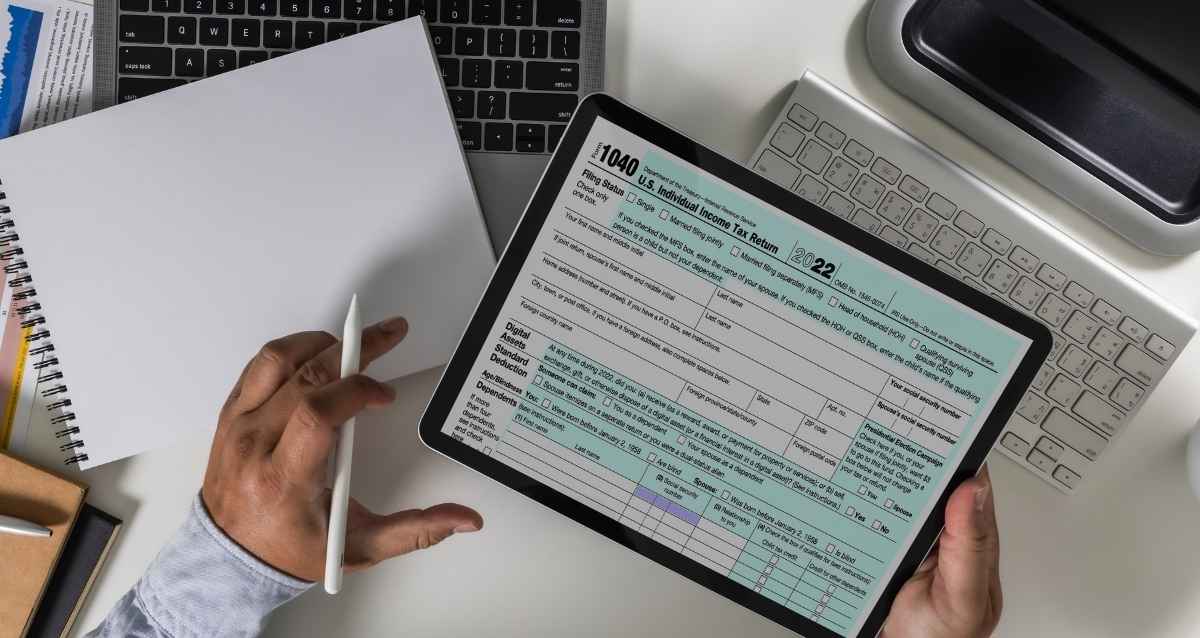Digital Economy Taxation: How VAT Applies to Electronic and Telecom Services
UAE's positive steps towards digital transformation have become a significant contributor towards the growth of the nation. Those who are conducting business related to the digital economy must be aware of the latest update as per the executive regulations of UAE's Federal Decree Law No.8 of 2017 (VAT Law) and how the business must adhere to the key updates outlined. The treatment of VAT may change depending on the services provided under the definition of telecommunication services or electronic services including the requirement for registration and input tax recoverability.
In order to understand the key updates in the new executive regulations of VAT Law which are related to electronic and telecommunication services, let us explore this article.
Defining Electronic and Telecommunication Services
First, it is very important to understand the services that come under the definition of telecommunication and electronic services.
✅ Electronic Services
Services are delivered automatically over the Internet or an electronic network. The primary condition to classify any service as an electronic service is that services are automatically delivered over the Internet or electronic network. While providing services the interference of humans shall be minimal. Electronic services include
* Supply of domain names, web hosting, and remote maintenance of programs.
* Supply and updating of software.
* Supply of digital content such as images, e-books, and videos.
* Streaming of music, movies, and online games.
* Provision of online advertising space.
✅ Telecommunication Services:
Services related to the transmission or broadcasting of signals, including:
* Wired and wireless communication.
* Broadcasting of audio and visual content.
* Transmission of data and signals for control purposes.
VAT Treatment of Electronic and Telecommunication Services
VAT on electronic and telecommunication services depends on the place of supply and the recipient's location. Place of supply plays a key role in the UAE VAT Law. It is very important to determine the place of supply of services to determine the VAT applicability.
The place of supply is UAE - UAE VAT is applicable
The place of supply is outside UAE - UAE VAT is not applicable.
In the case of services, there is a default rule to determine the place of supply which is the place of residence of the supplier. This means, a service provided by the UAE Company, the default place of supply is UAE.
A. Place of Supply Rules for electronic and telecommunication services.
1. Business-to-Business (B2B)
* If the recipient of services is registered for VAT in the UAE, the place of supply is the UAE.
2. Business-to-Consumer (B2C)
* Place of supply is where the services/customers enjoy the services. If the customers are within the UAE, such supply comes under UAE VAT. If customers are outside the UAE, UAE VAT is not applicable.
B. VAT Rates
* Standard Rate (5%): Most of the electronic and telecommunication services are subject to the standard rate of VAT which is 5% if such services are supplied within UAE.
Zero-Rated: Subject to the conditions, the services provided to a customer who is located outside UAE, may consider under 0% VAT.
3. Key Updates from the 2024 Executive Regulation
The 2024 amendments provide additional clarity for digital and telecommunication services:
➦ Location-Based Taxation
More clarity has been provided in the new executive regulations to refine and ensure the place of enjoyment of services. The aim is to accurately determine the place of consumption of services which is key for determining whether VAT is applicable or not.
➦ Input VAT Recovery for Telecom Providers
Telecommunication companies can now claim VAT input recovery on certain infrastructure expenses, enhancing operational cash flow.
➦ Simplified VAT Reporting for Small Digital Businesses
Small businesses engaged in digital services can benefit from simplified VAT filing processes, provided their turnover remains below a specified threshold.
Obligations for Businesses Supplying Digital Services
A. VAT Registration
Businesses shall register and obtain Tax Registration Number (TRN) for VAT purposes, if their taxable supplies (sales as well as import of goods or services) exceed the mandatory registration threshold of AED 375,000 in the previous 12 months or expected to be exceeded within the coming 30 days. A delay in registration time can attract an administrative penalty of AED 10,000.
B. Invoicing Requirements
FTA has not specified any format for making tax invoices. However, the minimum contents of tax invoices have been specified which include;
* Supplier's name and TRN (Tax Registration Number).
* Description of services.
* VAT amount and applicable rate.
C. VAT Filing and Payment
Upon registration, based on the stagger mentioned in the TRN Certificate, the taxable must submit the VAT return and clear the VAT payment before the specified deadline. Delay in timely filing can attract an administrative penalty which is AED 1000 for the first case and each violation in 24 months will be penalized AED 2000.
Best Practices for VAT Compliance in the Digital Economy
A. Leverage Technology
Technology is highly recommended to use accounting software which is accredited by FTA to streamline the right method for invoicing. Such software automates VAT calculation and preparation of VAT reports etc.
B. Monitor Cross-Border Transactions
It is crucial to determine the place of enjoyment when there is a cross-border transaction since the VAT applicability and VAT rate is determined based on this. Also, maintain proper documentation to prove the place of use and enjoyment of service.
C. Consult with a Tax Agent
A registered tax agent can help businesses:
* Navigate complex VAT rules for digital services.
* Optimize VAT recovery.
* Ensure compliance during FTA audits.
Common Challenges and Solutions
Challenge 1: Determining the Place of Supply
Solution: Especially, for the B2C transaction, it is highly important to implement a system for tracking the place where the services are used and enjoyed.
Challenge 2: Handling Cross-Border VAT
Solution: While determining the VAT (standard-rated or zero-rated) the understanding must be clear and documents for export of services must be maintained.
Challenge 3: Managing VAT on Bundled Services
Solution: Ensure accurate treatment when the services are provided as a bundle which has different VAT applicability and rates.
Opportunities for Digital Businesses
While VAT compliance is a legal obligation, understanding the rules offers opportunities to:
* Reclaim input VAT on eligible expenses.
* Build trust with stakeholders through transparent practices.
* Streamline operations by adopting digital solutions for VAT management.
Conclusion
The UAE's VAT regulations for the digital economy ensure that electronic and telecommunication services are taxed fairly, reflecting their growing role in the economy. Businesses must stay updated on regulatory changes, maintain accurate records, and seek expert guidance to remain compliant.
To learn more about Digital Economy and VAT: Taxation of Electronic and Telecommunication Services, book a free consultation with one of the Flyingcolour team advisors.
Disclaimer: The information provided in this blog is based on our understanding of current tax laws and regulations. It is intended for general informational purposes only and does not constitute professional tax advice, consultation, or representation. The author and publisher are not responsible for any errors or omissions, or for any actions taken based on the information contained in this blog.



